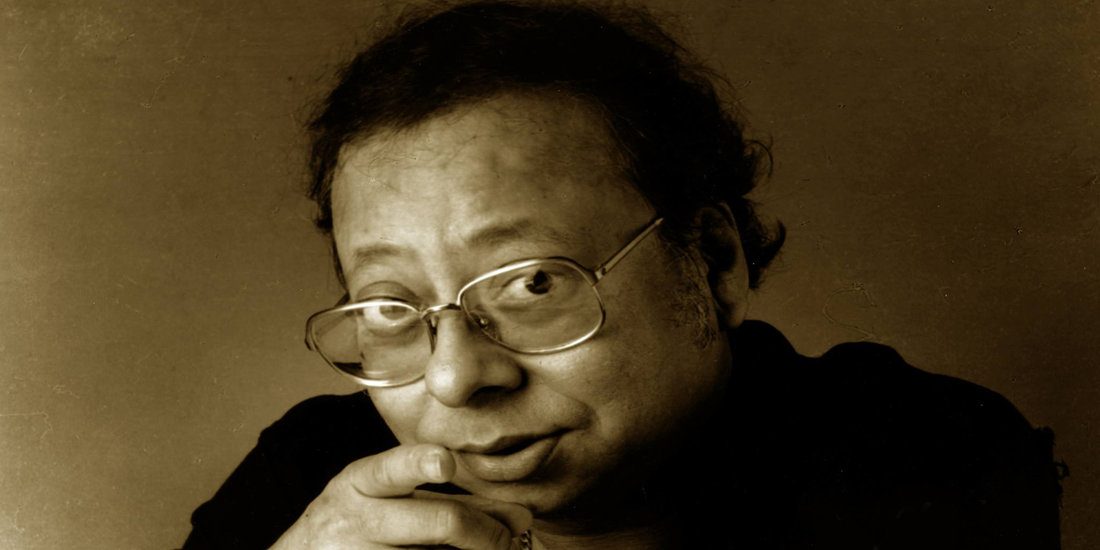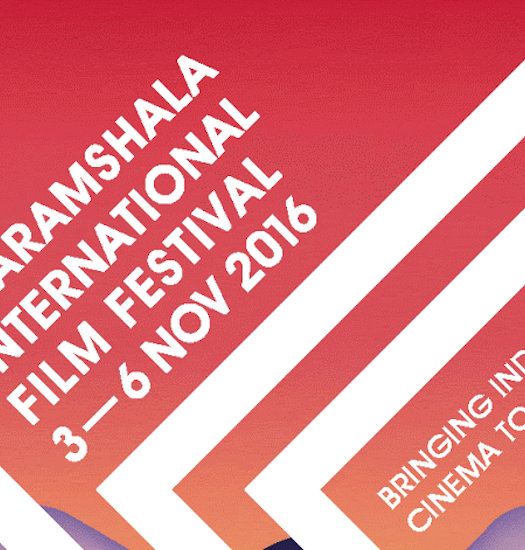Saregama’s tribute to RDX (27 June 1939 – 4 January 1994)
RD Burman (aka Pancham) revolutionized Bollywood with his inimitable style of music. From electronic rock to Jazz, Burman’s music had multicultural influences. His compositions had a mix of Western, Latin, Oriental, Arabic & Bengali Folk music. Pancham introduced the twin track effect in the song ‘Baharon Ke Sapne’ which he later also used to create the mesmerizing ‘qatra qatra miltee hai’ and a few more songs. He also pioneered the use of electronic organ in Indian Films with the song ‘O mere Sona re’ from Teesri Manzil.
 R. D. Burman AKA Pancham!
R. D. Burman AKA Pancham!
There are many stories behind R.D. Burman being called Pancham. Some stories say that that as a child whenever he cried, it sounded in the fifth note (Pa) of music notation. The word Pancham means five / fifth in his native language Bengali and hence he was called Pancham. Another apocryphal story says that the first note that he sang for the very first time was the fifth note. Another version is that when the veteran Indian actor Ashok Kumar saw a newborn Rahul uttering the syllable Pa repeatedly, he nicknamed the boy Pancham!
The X Factor !
Burman was truly innovative. His ingenuity in creating the right sound effects can make the best of foley artists envious. He experimented with different natural musical sounds like the sounds produced by rubbing sand paper and knocking bamboo sticks together. The opening beats of the song ‘Mehbooba – Mehbooba’ came from beer bottles, while cups and saucers were used to create the tinkling sound for the song ‘Churaliya Hai’ from the film Yaadon Ki Baaraat. For Satte Pe Satta, it is said that he made the singer Annette Pinto gargle to produce a background sound. The whooshing sound in the song ‘Meri Samne Wali Khidki Main’ came from rubbing a comb on a rough surface! It is said that in order to get the sound of raindrops, R. D. Burman spent a whole rainy night in his house’s balcony recording the sound he wanted!

He dreamt about Music. It is said that R.D. Burman sometimes dreamt tunes. When he revealed this to his father S.D. Burman, a legendary music director himself, his father asked him to hum the tune he dreamt into a tape recorder or jot down the notations next morning immediately after getting up & improvise on them later. It is believed that the tunes of’ Kanchi re kanchi re’ (Hare Rama Hare Krishna), ‘Tum bin jaoon kahan’ (Pyar Ka Mausam) and ‘Duniya mein logon ko (Apna Desh)’, amongst others, all sprang from Pancham’s dreams!

The Musical Journey!
Pancham Da’s precocious musical talent was on display when he composed his first song at the age of 9. The song was ‘Aye meri topi palat ke aa’ which was used by his father S.D. Burman in the film Funtoosh. The song ‘Sar jo tera chakraye’ was also composed by Pancham at a very young age.
RD Burma’s first release as independent music director was the film Chhote Nawab in 1961. Mehmood had initially approached S.D Burman for the music of this film but SD Burman didn’t have any free dates. At this very meeting, Mehmood saw Rahul playing tabla and decided to get him onboard as music director for the film. RD Burman also did a small role in this film. Burman’s first hit movie as a film music director was Teesri Manzil which was released in 1966.
Passion For Music.. Passion For Cooking..
After his first big hit, Teesri Manzil, RD’s demand as a music director shot up. Producers, directors, actors, singers and musicians came to him for deliberations over their projects. RD didn’t feel he could serve simple dishes like dhokla to guests like Nasir Hussain, Shakti Samanta, Mehmood and Rajesh Khanna etc. Hard drinks too had to be served. And so, both alcohol and non-vegetarian food were introduced in the house. RD himself was the cook. Mohammed Rafi used to come and cook Mughlai food for the Dev Burmans. RD took cooking lessons from him.

The 70’s !
The 70’s was the decade for Pancham. He became highly popular with his compositions for movies like Kati Patang, Hare Ram Hare Krishna, Seeta aur Geeta, Rampur ka Lakshman, Mere jeevan saathi, Bombay to Goa, Apna Desh, Parichay, Yaadon Ki Baaraat, Aap ki Kasam, Sholay, Aandhi, Kasme Vaade, Ghar, Gol Maal, Khubsoorat & more. Movies starring Rajesh Khanna brought him a lot of fame. The songs ‘Yeh Shaam Mastani’ and ‘Yeh Jo Mohabbat Hai’ sung by Kishore Kumar became instant hits. R.D. Burman won Filmfare Award for 3 films: Sanam Teri Kasam, Masoom & 1942-A Love Story.

He Gave Gems To The Industry!
Some of the leading singers of Bollywood were brought to the industry by R.D Burman! The playback singer Kumar Sanu was given his first break by R D Burman in Yeh Desh (1984) as voice of Kamal Haasan. Abhijeet cut his teeth in Anand aur Anand (1984) courtesy Pancham da. Although he made his debut a long time ago, Hariharan was came in limelight in a duet with Kavita Krishnamurthy in ‘Hai Mubarak Aaj ka Din’ from Boxer (1984), which was composed by R D Burman. In 1985, Mohammed Aziz, made his debut with Shiva Ka Insaaf (1985) under R D Burman.

Love Life!
Rita Patel, a fan of R.D Burman, had bet her friends that she would be able to get a movie-date with Burman. They met in Darjeeling. RD Burman got married to Rita Patel in 1966. Their marriage did not last long and they got divorced in 1971. It is said that the song Musafir Hoon Yaaron from Parichay was composed by him, when he was at a hotel after the separation.
RD Burman married Asha Bhosle in 1980. Their close association started in 1966 with “Teesri Manzil” culminated in their marriage in 1980. Asha in an interview said that they shared their passion for music and cooking. They lived more like friends, as partners in their musical journey than as husband and wife. They recorded a lot of songs together. Although, towards the end of his life, they did not live together.

The End:
During the late 80’s R.D. Burman’s commercial film career started declining. Many filmmakers stopped patronizing him, as films featuring his compositions flopped at the box office one after the other. The filmmaker Subhash Ghai promised RD Burman Ram Lakhan (1989), but gave it instead to Laxmikant-Pyarelal, who had earlier played in Burman’s orchestra. At the premiere of Gardish every member of the film crew was invited by the producer except one. They did not want RD to be part of the premiere as he was considered an unlucky music director in those days. Despite of the industry going in opposite direction, Vidhu Vinod Chopra decided to work with R.D. Burman for his film 1942 – a love story. The music of the film was released after his death, and was highly successful. It posthumously won him the third and last of his Filmfare Awards.
Even decades after his untimely death, Pancham Da continues to inspire music directors and singers alike even today. His versatility shows in the melodies that he has created spanning from semi-classical (e.g. “Hame tumse se pyaar kitna“) to peppy dance numbers (O Haseena Zulfon Wali Jaane Jahan, Dum Maaro Du), from evoking longing and pain (Meri Bheegi Bheegi Si, Tere Bina Zindagi) to the infectiously energetic (Chadhti Jawani, Piya Tu Ab To Aaja). In an illustrious career spanning about 4 decades, he worked with the crème de la crème of lyricists, from Sahir Ludhianvi, Majrooh Sultanpuri and Gulzaar, to Gulshan Bawra, Anand Bakshi and Javed Akhtar. All accalimed singers of the era —Kishore, Lata, Asha, Rafi and Mukesh — sang for him. On the occasion of his birthday, his tunes continues evoke reminiscences of an era brimming with romance, pain, anger, despair, heartbreak, masti, flirting and breakthrough dancing.



